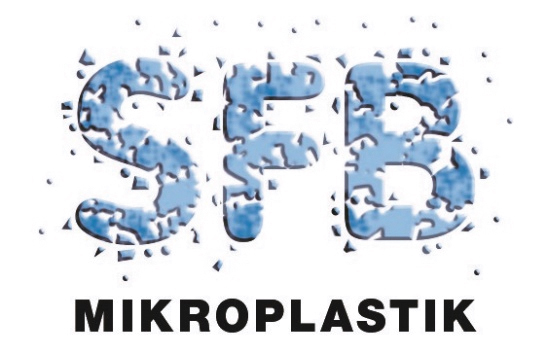B-Projekte

Verhalten und Migration in und zwischen Umweltkompartimenten
B01: Physikalisch-chemische Gesetzmäßigkeiten der Wechselwirkungen an und mit Mikroplastik-Partikeln in wässriger Lösung
Zentrale Hypothesen von B01 im SFB 1357 sind: 1) Zeitskalen und Mechanismen der Verwitterung von Mikroplastik (MP) werden durch eine Eco-Corona (EC) verändert. 2) Je nach Zusammensetzung, kann die EC sowohl passivierend auf die UV-Verwitterung wirken, als auch die Alterung photo- oder redoxchemisch aktivieren. 3) Bei der Alterung von MP-Partikeln entstehend final wasserlösliche Oligomere, die in Wechselwirkung mit den natürlichen aquatischen Komponenten treten. Ziele von B01 sind die Bestimmung und Identifikation i) der Wechselwirkung gealterter MP-Partikel mit der aquatischen Umwelt, ii) der Zeitskalen und des Einflusses der Zusammensetzung der EC für die photochemische Verwitterung von MP iii) der Bedeutung der Eisen-Redoxchemie für die Alterung von MP-Partikeln, iv) der Wechselwirkung von MP mit natürlichen Umweltpartikeln.
Teilprojektleitende: Prof. Stefan Peiffer, Prof. Georg Papastavrou, Prof. Jürgen Senker,
B02: Transportverhalten von Mikroplastik in lentischen Systemen: Einfluss von hydrodynamischen Bedingungen und Aggregation auf Mikroplastik-Verweilzeiten und räumliche Verteilungsmuster von Mikroplastik
B02 konzentriert sich im SFB 1357 auf Labor- und Feldexperimente zur Quantifizierung der Prozesse, die den Transport chemisch komplexer Mikroplastik (MP)-Partikel und deren räumliche Verteilung in lentischen Umgebungen beeinflussen. Die Komplexität und Repräsentativität der in diesen Experimenten verwendeten Kunststoffpolymere wird im Vergleich zur 1. Förderperiode (FP) deutlich erhöht und ist näher an den in der Natur ablaufenden Prozesse. Das Projekt ist in drei Arbeitspakete unterteilt, die die Wechselwirkungen zwischen MP und vorhandenen Seepartikeln zur Bildung von Aggregaten (WP1), den Einfluss von Turbulenzen, die durch abiotische und biotische Prozesse erzeugt werden, auf den MP-Transport in der Wassersäule (WP2) und die Einbeziehung experimenteller Daten in eine Reihe von Modellierungsumgebungen zur Quantifizierung der Prozesse, die den MP-Transport in der Wassersäule und seine räumliche Verteilung in Seesystemen beeinflussen (WP3) (Simulationen ganzer Seen), umfassen.
Teilprojektleitende: Dr. Ben Gilfedder, Prof. Vadym Aizinger
B03: Verhalten von Mikroplastik im System Fließgewässer/Hyporheische Zone
Fließgewässer gelten als Haupteintragspfad von Mikroplastik (MP) in marine Ökosysteme. Allerdings ist über das Transportverhalten und den Verbleib von MP in Flüssen und Bächen nur sehr wenig bekannt. Ebenso bestehen große Wissenslücken bezüglich der Migration von MP an der Schnittstelle zwischen Oberflächenströmung und der hyporheischen Zone (HZ, Grenzzone zwischen Fließgewässern und angrenzenden Grundwasserleitern), sowie der Mobilität von MP innerhalb der HZ. In der 2. Förderperiode untersucht das B03 im SFB 1357 die Auswirkungen, naturnäherer, instationärer Abflussbedingungen auf den Transport und die Retention von Mikroplastik (MP). Dabei wird auch die Sedimentation und Erosion verschiedener MP-Partikel (fabrikneu und gealtertet) in Wechselwirkung mit mobilen Flussbettsedimenten betrachtet. Es soll geklärt werden, unter welchen Bedingungen Flussbettsedimente eine Quelle oder Senke für MP darstellen. Desweiteren werden die Verlagerung von flussbürtigem MP in die Flussaue während Hochwasserereignissen (Schnittstelle aquatische-terrestrische Systeme) an einem Modellstandort sowie die Auswirkungen von Interaktionen zwischen MP und dem Modellorganismus Dreissena bugensis auf den MP-Transport erforscht. B03 - Behaviour of microplastics in the running water/hyporheic zone system
Teilprojektleitende: Dr. Sven Frei, Prof. Jan Fleckenstein
B05: Verhalten und Wirkung von Mikroplastik im System Landoberfläche-Atmosphäre
B05 untersucht und bewertet im SFB 1357 die Umweltrelevanz von atmosphärisch gealtertem und transportiertem Mikroplastik (MP). Dazu wird die bereits in der 1. Förderperiode (FP) entwickelte Methode zur quantitativen und reproduzierbaren Detektion von MP im Windkanal eingesetzt, um Resuspendierungsraten von realitätsnahen MP-Partikeln (z.B. Fasern, gealtertes MP sowie MP mit Eco-Corona) von natürlich strukturierten Oberflächen zu bestimmen. Zudem wird erstmals die Alterung an der gleichen Auswahl von MP-Partikeln unter typischen atmosphärischen Bedingungen, also zusätzlich zur Bewitterung unter Exposition mit atmosphärischen Radikalen (Ozon und OH), simuliert und über die Ausgasung von flüchtigen Kohlenwasserstoffverbindungen charakterisiert. Integrativer methodischer Bestandteil ist die Umsetzung der experimentellen Ergebnisse zu Transportverhalten und Alterung in die turbulenzbasierte atmosphärische Modellierung und damit die Möglichkeit für den gesamten SFB 1357 relevante Fragestellungen zu untersuchen, z.B. im Hinblick auf die Wasser- oder Bodenmesokosmen.
Teilprojektleitende: Prof. Christoph Thomas, Prof. Anke Nölscher
B06: Verhalten und Transport von Mikroplastik in gestörten und ungestörten Böden
Die Kontamination von Ökosystemen durch Mikroplastik (MP) wurde bislang vor allem für aquatische Systeme beschrieben. Inzwischen ist allerdings bekannt, dass auch Böden davon betroffen sind. B06 untersucht im SFB 1357 den Transport von chemisch komplexen und realitätsnahen Mikroplastik (MP)-Partikeln auf Bodenoberflächen und im Boden durch Wasser und Bioturbation in natürlichen gestörten und ungestörten Böden. Das Projekt liefert dadurch essenzielle Daten für ein Verständnis der Transport- und Akkumulationsmechanismen von unterschiedlichen umweltrelevanten Sorten von MP-Partikeln. Die Erkenntnisse zu potenziellen Akkumulationsbereichen und somit zur Expositionswahrscheinlichkeit für Organismen bilden die Grundlage für eine realitätsnahe ökologische Risikobewertung.
Teilprojektleitende: Prof. Christina Bogner, Prof, Stephan Gekle, Dr. Martin Löder

